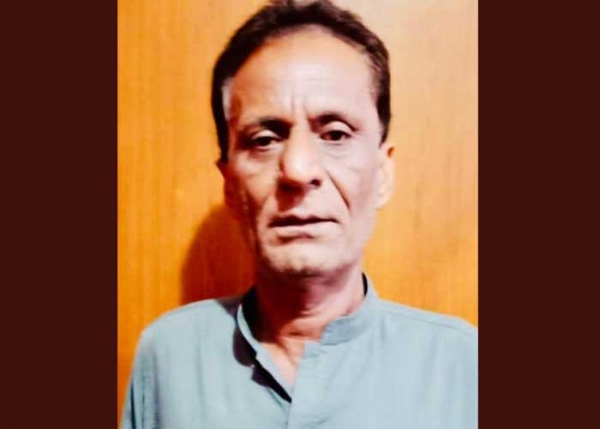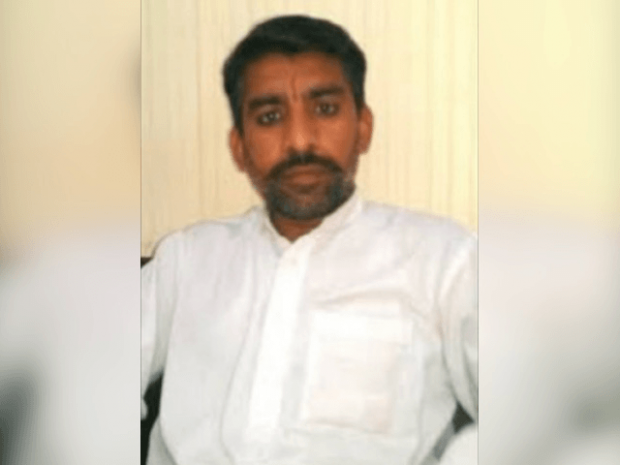
Pakistan – A Country of Particular Concern!

By Nasir Aijaz
AsiaN Representative
Islamabad: Certain gruesome incidents of murders and such other kind of persecution of religious minorities on the pretext of blasphemy allegations, having taken place with a sequence within last nine days, are perhaps enough to supplement the recommendation of United States Commission on International Religious Freedom (USCIRF) that Pakistan should be designated as ‘A Country of Particular Concern’.
The USCIRF, in its Annual Report, published in 2021, had recommended that Pakistan should be designated as “Country of Particular Concern” due to its worsening religious freedom conditions for Christians and other religious minorities.
Let’s ponder over the situation prevailing in Pakistan, in the light of USCIRF concerns, which stated that “Religious freedom conditions in Pakistan continued to worsen. The government systematically enforced blasphemy laws and failed to protect religious minorities from abuses by non-state actors. There was a sharp rise in targeted killings, blasphemy cases, forced conversions, and hate speech targeting religious minorities.”
On January 31, 2022, one William Siraj, a priest of a Church, was shot dead while another Patrick Naeem was injured after unidentified armed assailants opened fire on them in Peshawar, the capital city of Khyber Pakhtunkhaw province, bordering Afghanistan.
Just a couple of days later, on February 2, a Hindu businessman Satan Lal was shot dead by unknown assailants in Ghotki, a district notorious for persecution of Hindu community, in Sindh province of Pakistan. The incident took place at Daharki Town where a sacred Hindu Temple complex exists and at the time of his assassination, a religious congregation was in the progress. There are conflicting reports about this incident. Certain reports suggest that deceased Satan Lal was threatened many times by the Muslim extremists to leave for India, which he had refused, while according to other theory, the actual target was the chief Pundit of Temple Complex.
Earlier, on January 4, another Hindu businessman, Sunil Kumar, was shot dead by unidentified people in the same area of Ghotki district, bordering Punjab province.

While the peaceful protest by the Hindu community and the civil society against the murders was going on without any action taken so far by the government, a local court on February 7, 2022, awarded life imprisonment to a Hindu teacher Notan Lal, of same district, for allegedly insulting Prophet Muhammad, in a blasphemy case registered against him in September 2019. Notan Lal used to run a private school.
He was imprisoned since then after accusations from a student Muhammad Ihtisham, who later said he had lied. Following his ‘Lies’, the mob, led by extremist Mullahs, had vandalized the Nota’s school, five shops owned by Hindu community and Sacho Satram Das Temple. Reports suggest that this was a politically motivated act with Mian Mithoo, an influential Mullah of Ghotki district, known for forced conversions of Hindu girls, as its mastermind. It seems the court has convicted Notal Lal under pressure of the influential Mullah, who enjoys state support.
The court verdict came even after confessional statement of student Ihtisham on social media that ‘he accused the teacher of blasphemy because he had not memorized his lesson and the teacher had scolded him.’ He had urged “Sir Notan” for forgiveness in the social media post. The police had registered cases against more than 200 ‘unidentified persons’ involved in violence but no further action was taken.
Prof. Notan Lal was lodged in jail in Sukkur, another district, and the case against him was tried inside the prison instead of producing him in the court.
Similarly, on January 4 this year, a district judge in Punjab’s Rawalpindi city sentenced Zafar Bhatti, country’s longest-serving blasphemy accused, to death. Zaffar Bhatti, a Pastor, was already serving a life-long prison sentence when District Court Judge Sahibzada Naqeeb Shehzad increased the Christian man’s penalty for blasphemy against Islam to capital punishment.
Bhatti, 56, had been incarcerated in the Adiala Central Jail of Rawalpindi since July 2012 when police charged him with sending text messages deemed blasphemous against Islam. Bhatti had repeatedly denied the blasphemy charges leveled against him by the courts.
In Multan city of Punjab province, a Muslim professor was also sentenced to death after being convicted under blasphemy law on December 21, 2021. Prof. Junaid Hafeez, 33, was ‘found guilty’ of spreading anti-Islamic ideas. Hafeez was also fined half a million Pakistani rupees. Police had arrested Hafeez in 2013 for allegedly displaying blasphemous content while a visiting professor at Bahauddin Zakariya University in the city of Multan. He spent most of the time in solitary confinement. Amnesty International had appealed to the Pakistani authorities for unconditional release of the professor.
On December 3, 2021 a Sri Lankan factory manager was lynched, burned to death in Sialkot, Punjab.
A court in Lahore city of Punjab had assigned the death sentence under blasphemy law to Asif Pervaiz in September 2020, though Pervaiz’s status remained unclear.
Despite the Pakistan government’s lofty claims of complete religious freedom, the country’s Christian and Hindu communities continued to suffer discrimination, intolerance, and incidents of outright persecution during entire period of Pakistan Tehreek-e-Insaf (PTI) rule since August 2018.
The International Christian Concern (ICC) documented at least 25 incidents of persecution against Pakistan’s Christian population between January 1 and March 31, 2021. The documented incidents included false blasphemy accusations, abductions, forced conversions, forced marriages, physical violence, religiously motivated murders, and instances of intimidation. The incidents having taken place during later period are yet to be documented as in 2021 alone, there have been several examples of mob violence, targeted killings, and the desecration of graves and houses of worship.
Pakistan is overwhelmingly Muslim country but Christians and Hindus make up the largest minority groups, with each representing about 1.6% of the population.
Hindus are mostly settled in Sindh province while there are countless Christian villages in the Punjab heartland, while there is also a sizeable population in the deeply conservative north-western Khyber Pakhtunkhwa province, particularly in Peshawar city.
The majority of Pakistan’s Christians are descended from low-caste Hindus who converted during the British Raj – partly to escape the caste system. Christian communities remain among the poorest sections of society and often still do menial jobs. Entire villages in parts of Punjab are Christian and their inhabitants work as laborers and farmhands. However, there are sections of the Christian community that are well off, better educated and mainly settled in Karachi, Sindh. Most of Them came over from Goa, India during the British Raj however several Christian families shifted from Punjab being unsafe there.
It has been observed that Muslims, Christians and Hindus mostly co-exist amiably enough without frequent outbreaks of animosity but false accusations of blasphemy by extremist Islamists have often led to mob violence against religious minorities.
Here is a brief history of some unfortunate incidents:
An attack on a church in Quetta in December 2017 killed nine people and injured 57; a suicide attack targeting Christians celebrating Easter at a Lahore playground in March 2016 left 70 dead and more than 340 wounded; two bomb blasts at churches in Lahore in March 2015 killed 14 and hurt more than 70 people; a twin suicide bomb attack at a Peshawar church in 2013 left around 80 dead; in 2009, nearly 40 houses and a church were burnt by a mob in Gojra town in Punjab, with eight people burnt alive; in 2005, hundreds fled their homes in Faisalabad as churches and Christian schools were set on fire by a mob, after a resident was blamed for burning pages of the Holy Quran.
Since the 1990s, scores of Christians have also been convicted of “desecrating the Holy Quran” or “blaspheming against the Prophet Muhammad”, although experts say most accusations are fueled by personal disputes.
While most were handed death sentences by lower courts, those sentences were often set aside by higher courts due to lack of evidence or because the complainants were found to be targeting the community for economic benefits.
In 2012, a Christian girl, Rimsha Masih, became the first non-Muslim to be acquitted in a blasphemy case when it was discovered she had been framed by a local Muslim cleric.
Perhaps the best-known example is that of Asia Bibi, a Christian woman from a Punjab village who in 2010 got into an altercation with some Muslim women and was later accused by them of having blasphemed.
Salman Taseer, the then governor of Punjab who stated that Pakistan’s strict blasphemy law had been abused in the case, was later murdered by his Islamist bodyguard, Mumtaz Qadri.
Qadri was found guilty and executed in February 2016, prompting mass protests.
Pakistan’s minister for minority affairs and a Christian leader Shahbaz Bhatti was assassinated in 2011 by the Taliban for speaking out against the law.


